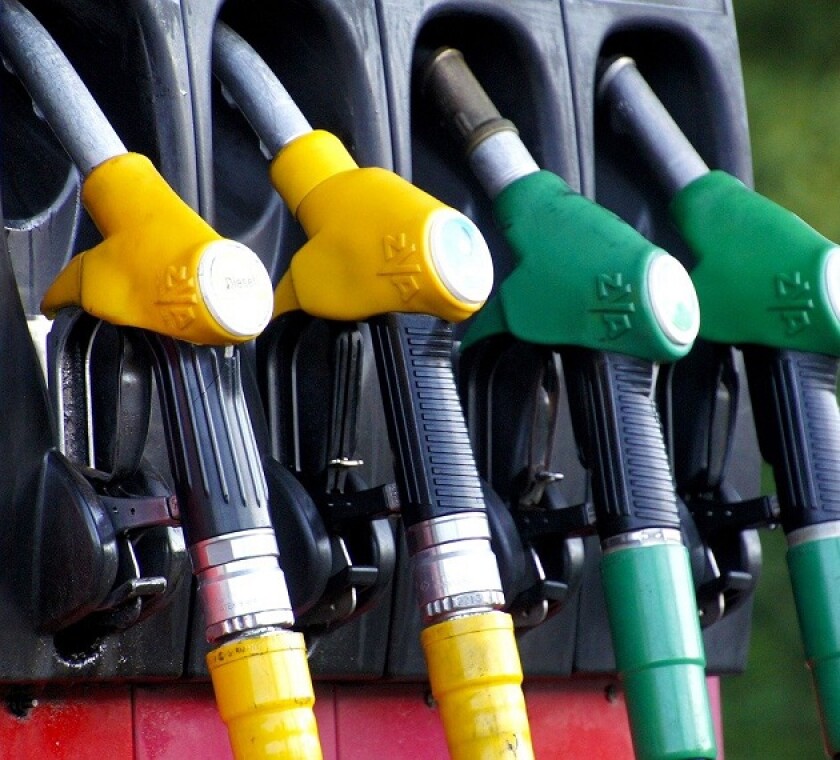The Irish mineral oil tax (MOT) and carbon tax are subject to changes in their rates. The MOT is an excise duty that is charged on mineral oils such as petrol, diesel, kerosene, and heavy fuel oil. The tax is payable on a per litre basis depending on the specific mineral oil type used. MOT is composed of a non-carbo component and a carbo component that is based on the amount of carbon dioxide (CO2) emitted by each fuel type.
In general terms, the Irish carbon tax is levied on suppliers of fossil fuels to Irish consumers, private individuals, and businesses, and it covers around 50% of all economy-wide CO2 emissions. The specific type of tax differs depending on the type of fuel, as follows:
A carbon charge, included as a component of the MOT rate, applies to liquid fuels, which are hydrocarbon oils such as petrol and diesel, substitute fuel, and liquefied petroleum gas (LPG);
A carbon tax called the solid fuel carbon tax applies to solid fuels such as coal and peat;
A carbon tax called the natural gas carbon tax applies to natural gas.
Carbon taxes play an important role in the Irish government’s plan to reach carbon neutrality by 2050. The Finance Act 2020 had prescribed a progressive increase of the carbon tax rate leading to a rate of €100 ($109) per tonne of CO2 by 2030.
The Finance Act 2021 provided for an increase of €7.50 in 2022, bringing the overall current rate of the carbon tax from €33.50 to €41 per tonne. This increase applied from October 13 2021 for diesel and petrol, and it will apply from May 1 2022 for all other fuels. The delayed increase was in recognition of the additional expense for home heating over the winter period.
However, due to recent international events and the consequential significant rise of the prices generally, the Irish government has decided to intervene on the MOT rates in order to mitigate the increasing costs for businesses and consumers.
Tax decreases from the Irish government
In March and April 2022, the rates of the non-carbon component of MOT have been decreased with respect to petrol, auto-diesel, and marked diesel or green diesel. This decrease also applies to aviation gasoline, to heavy oil used for aviation, and to private pleasure navigation and substitute fuels.
From May 1 2022, a further rate decrease will be applied to kerosene, fuel oil, marked diesel or green diesel, LPG, and substitute fuels provided they are not used as propellants.
As a result of the above changes, in the specific case of MOT on vehicle gas there will be no modification to the existing rate. This is because the increase in the carbon component is compensated fully by a decrease in the non-carbon component.
There is ongoing political debate regarding the progressive increase of carbon taxes within the Oireachtas, the Irish parliament, with a view to approval of a carbon budget. This should provide a legal framework for meeting the national and international climate objectives of emissions reduction.
In particular, there has been criticism that the cost of the carbon tax is regressively socialised among all users. The tax has been criticised as a revenue-raiser rather than a means of behavioural change. It has also been suggested that the carbon tax should be better designed and accompanied by the necessary measures to assist people and communities to transition to low-carbon alternatives.
These discussions might potentially result in some amendments to the current carbon tax legislation in the future.
The National Energy Security Framework
On April 13 2022, the Irish government published the National Energy Security Framework, which provides a comprehensive response to Ireland’s energy security needs. The combined effect of the pandemic, the war in Ukraine, and the associated sanctions on Russia, has significantly increased the price of fuels and energy across Europe and in Ireland. The Framework sets out the Irish government’s response to these issues, based on three key themes:
Managing the impact on consumers and businesses, with a specific focus on financially vulnerable residential consumers in the short-term;
Ensuring the security of the energy supply in the near term, with a focus on the period up to and including winter 2022/23; and
Reducing the dependency on imported fossil fuels, in the context of phasing out Russian energy imports across the EU.
Some of the most relevant planned measures are as follows:
A reduction in VAT from 13.5% to 9% on gas and electricity bills from the start of May until the end of October 2022;
The continuation of the excise duty reduction on petrol, diesel and marked gas oil until the Irish Budget in October 2022;
The reduction to zero of the Public Service Obligation (PSO) levy on electricity bills; and
An additional payment of €100 for all recipients of the Fuel Allowance.
The Taoiseach (Irish Prime Minister), Micheál Martin T.D., said at the Renewable Energy Conference:
“The climate imperative is that we act now and change how we live, how we travel, how we produce food and how we generate and use energy”.
Faced with rising energy costs coupled with an increased focus on environmental issues, recent EU amendments to the VAT Directive will provide governments with more flexibility in the VAT rates they can apply and ensure equal treatment between EU member states.
The updated legislation will bring VAT rules in line with common EU priorities such as fighting climate change, supporting digitalisation, and protecting public health. As such, we can continue to expect many more changes in this area.
Alan Kilmartin
Director, Deloitte Ireland












